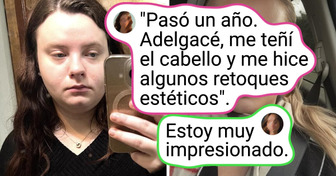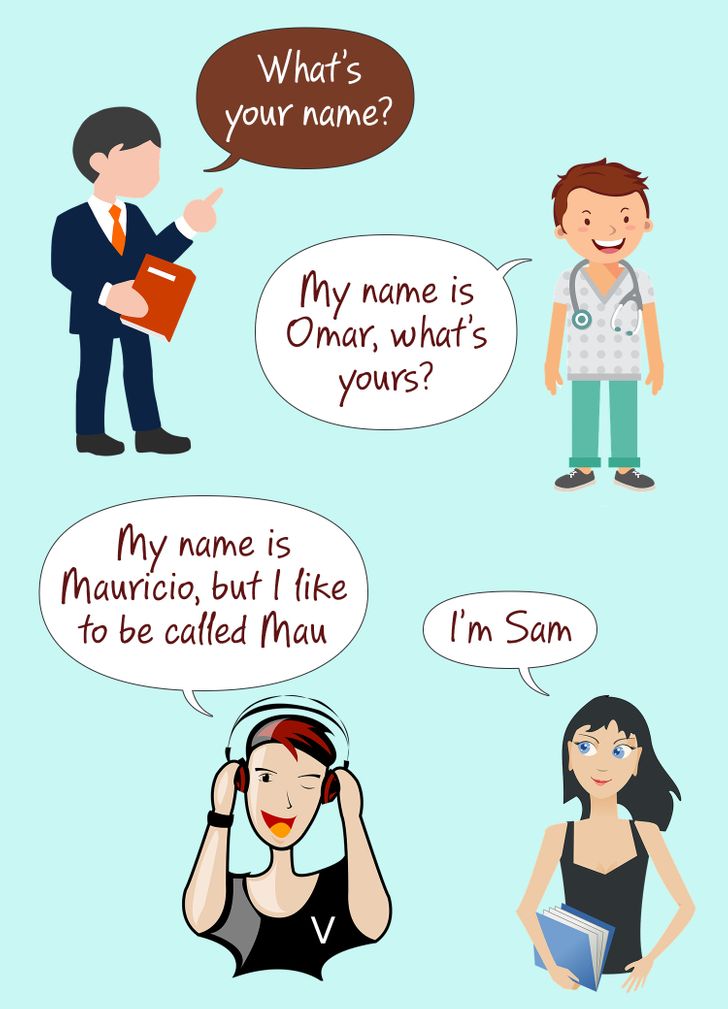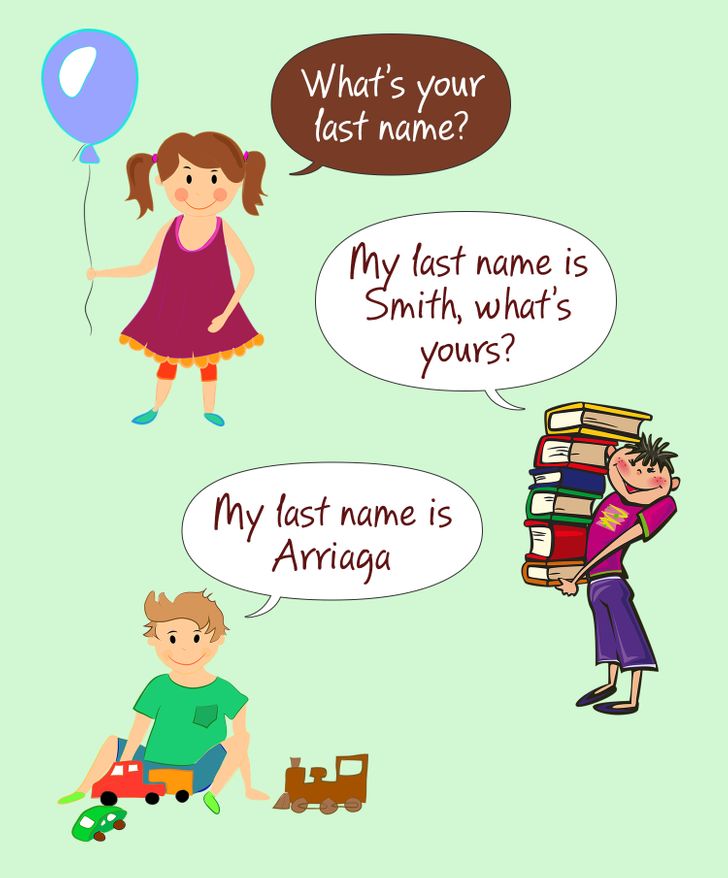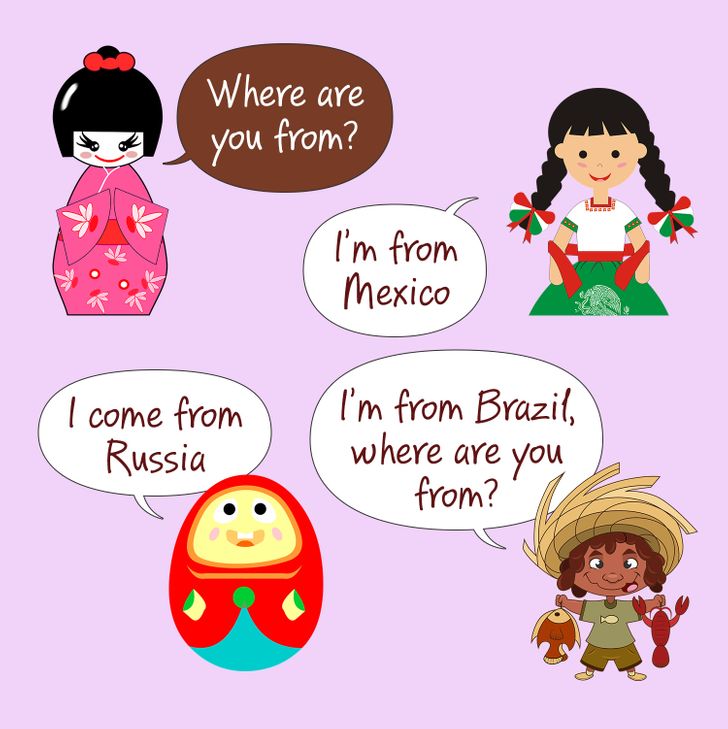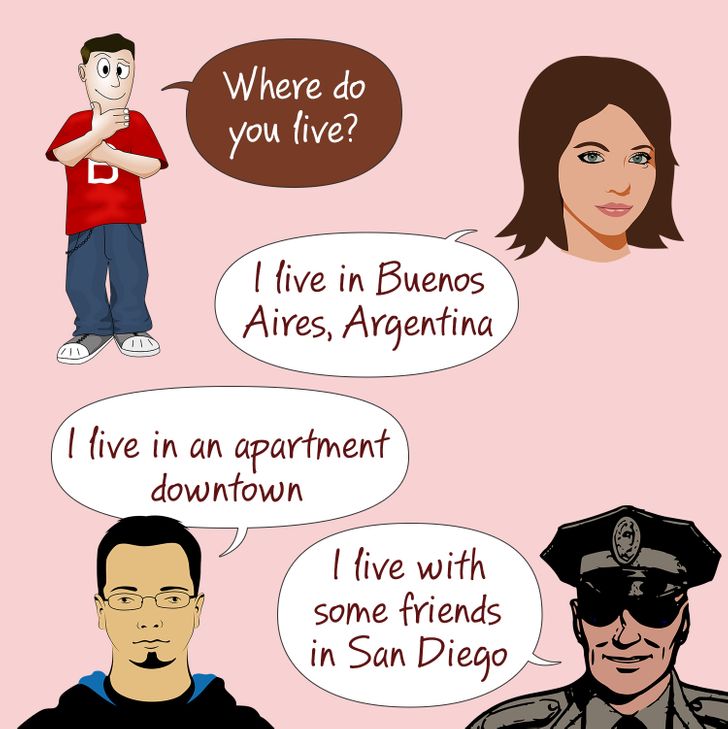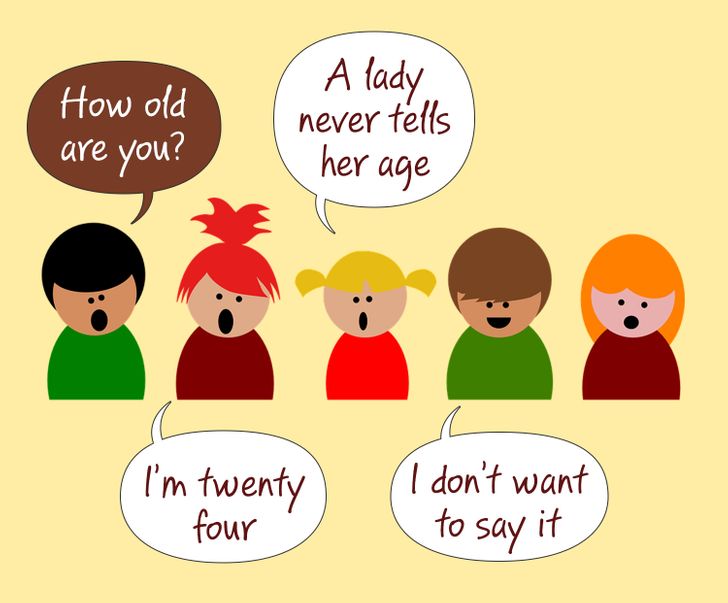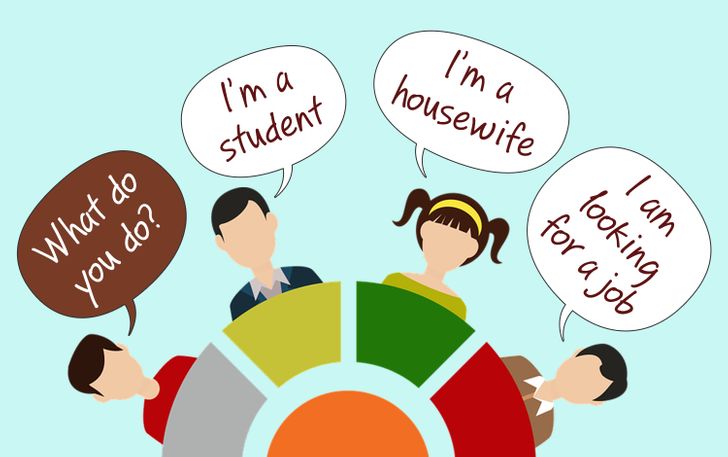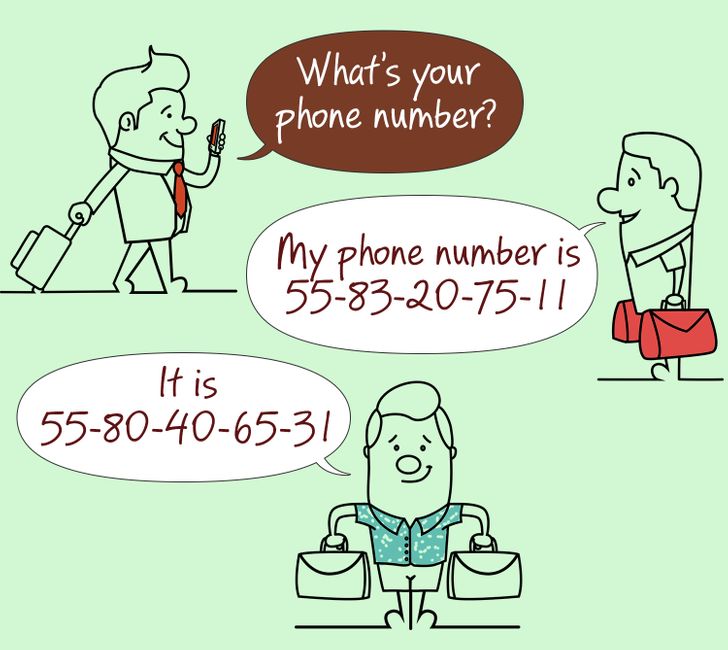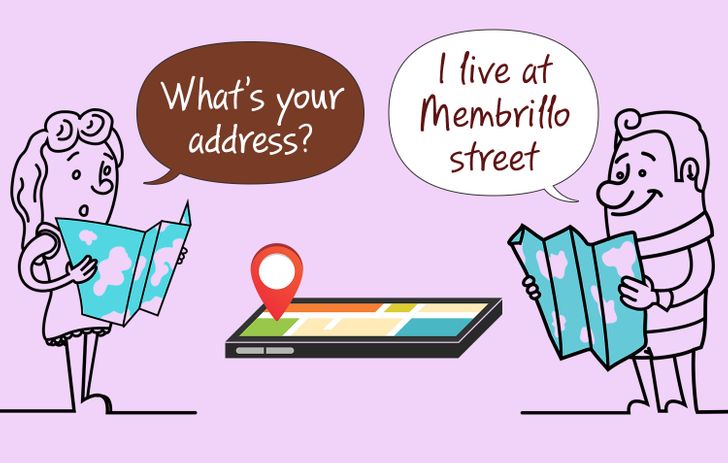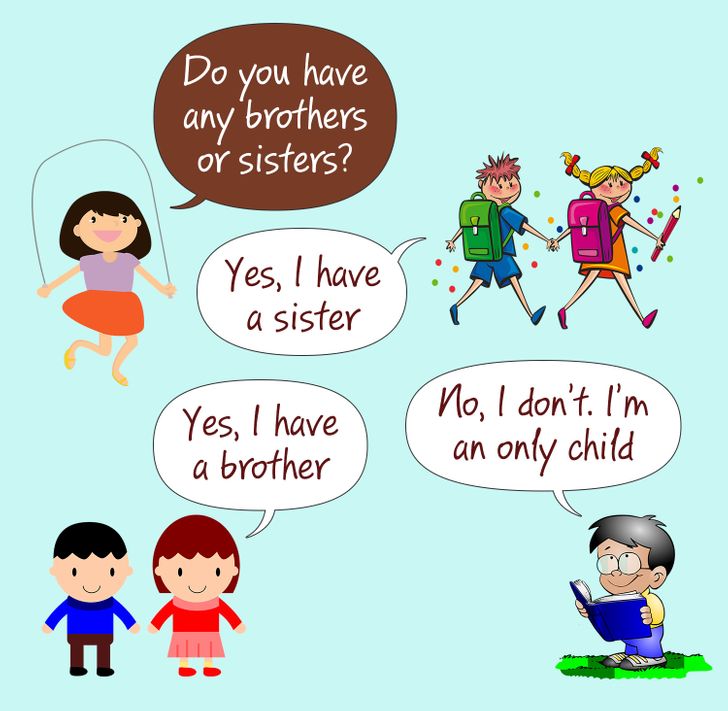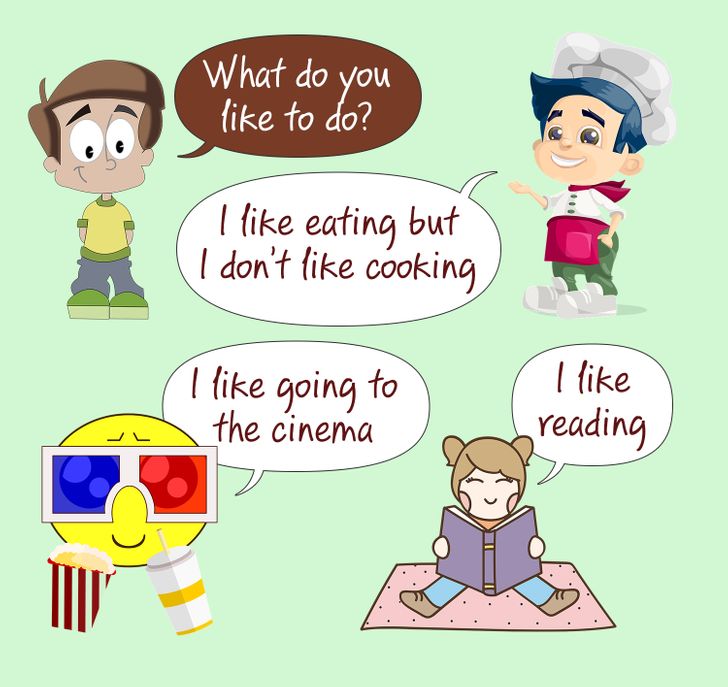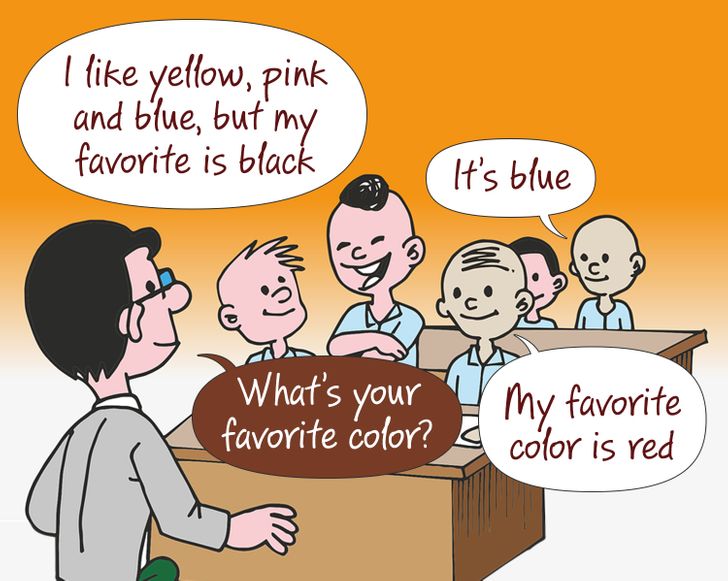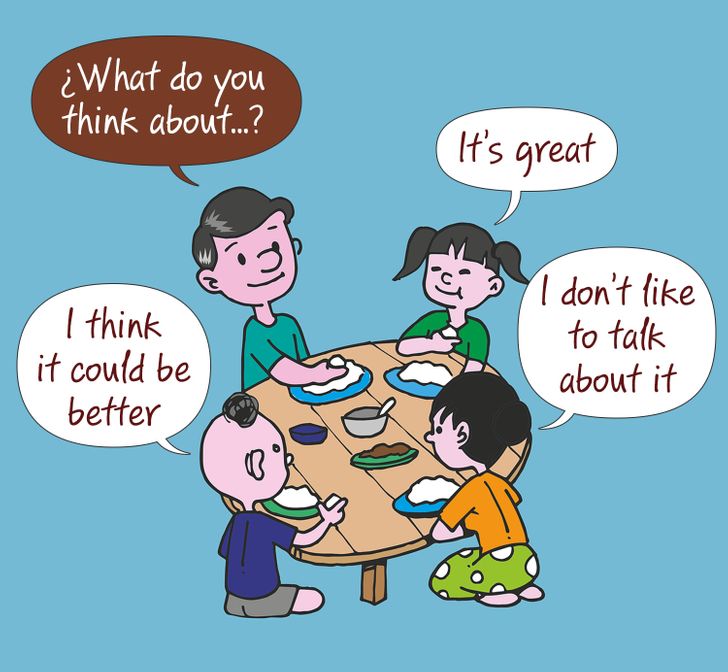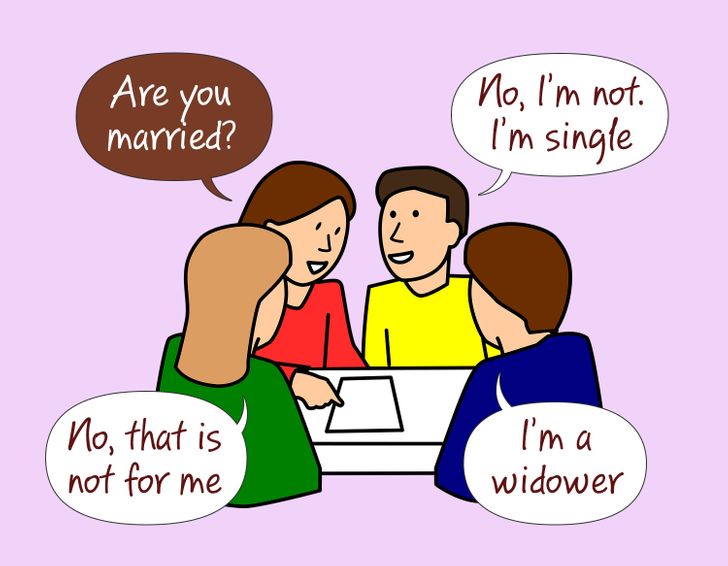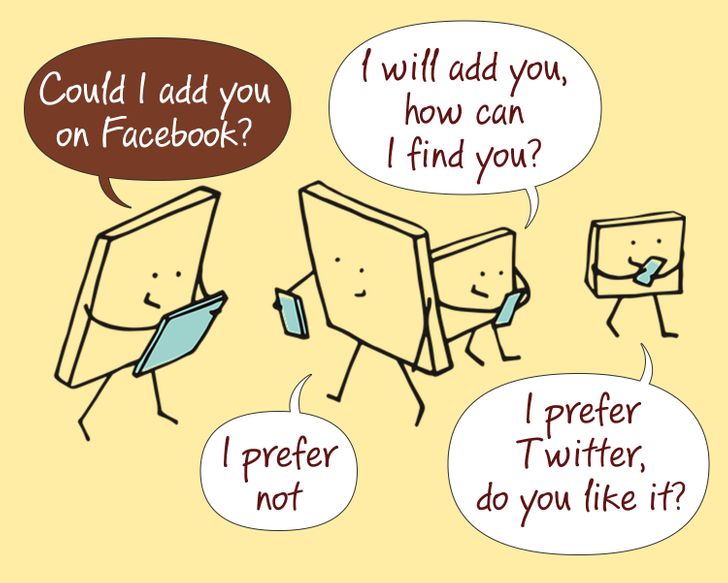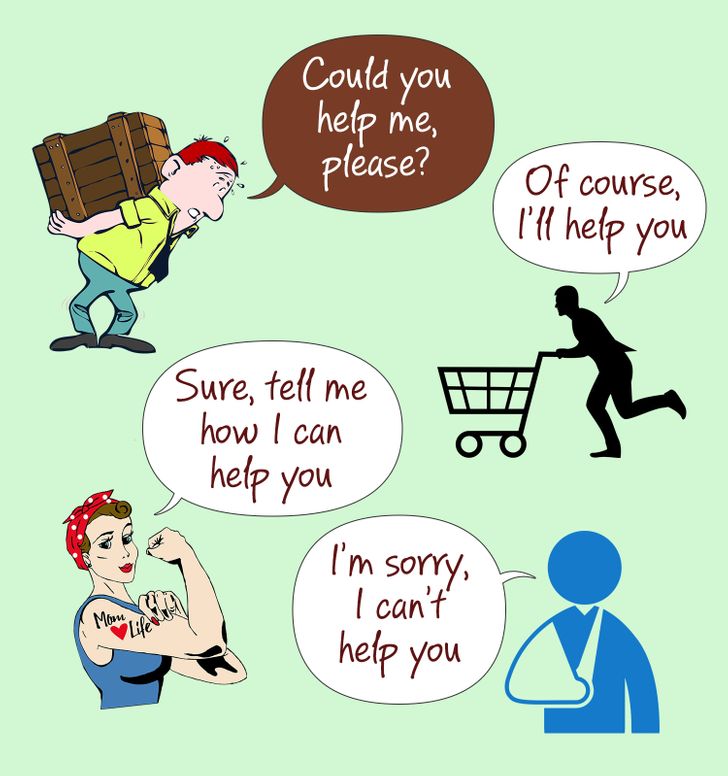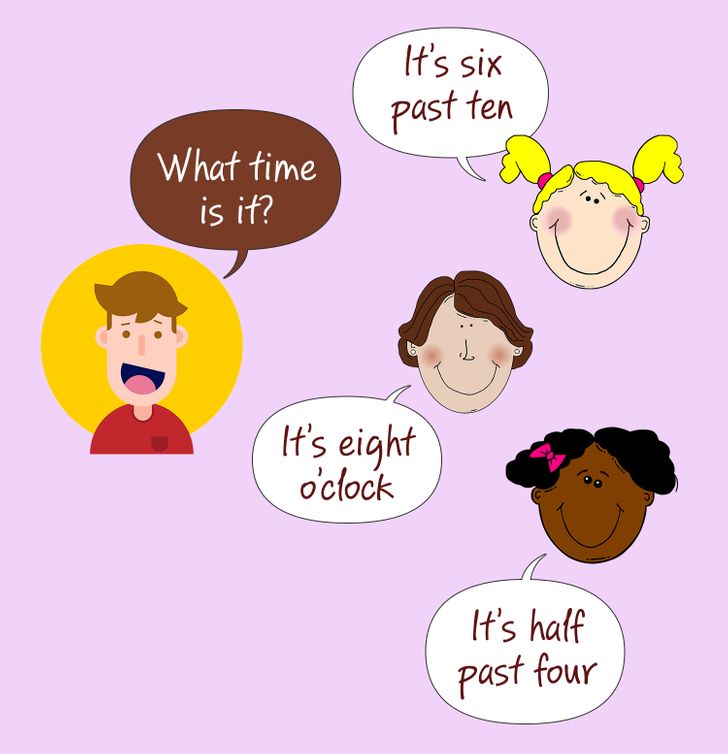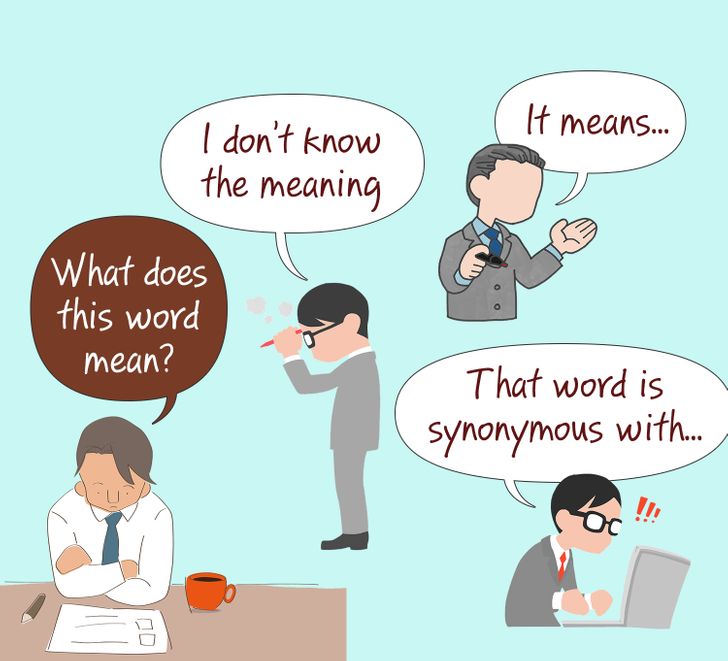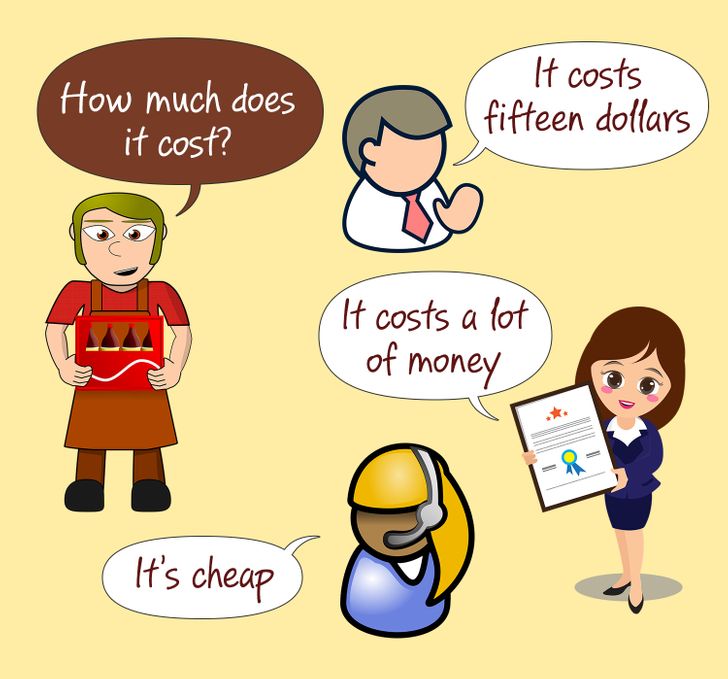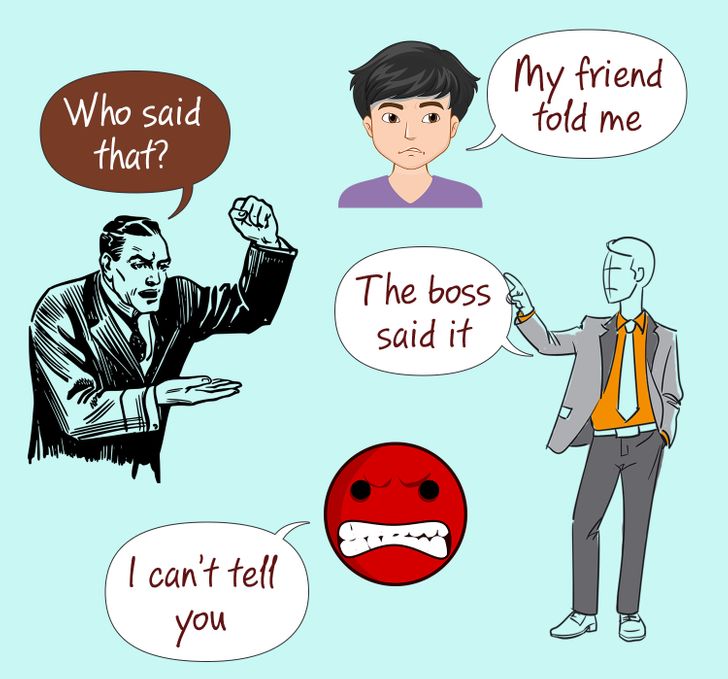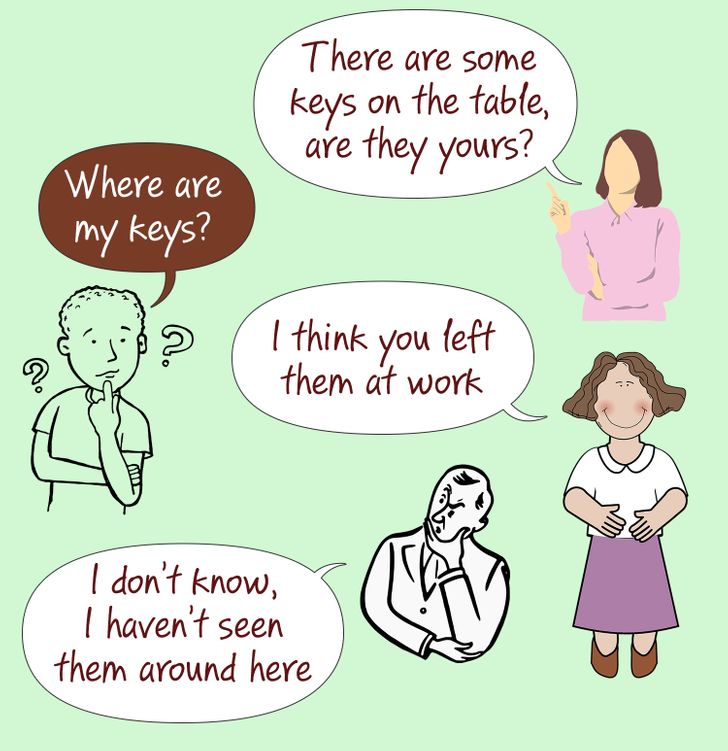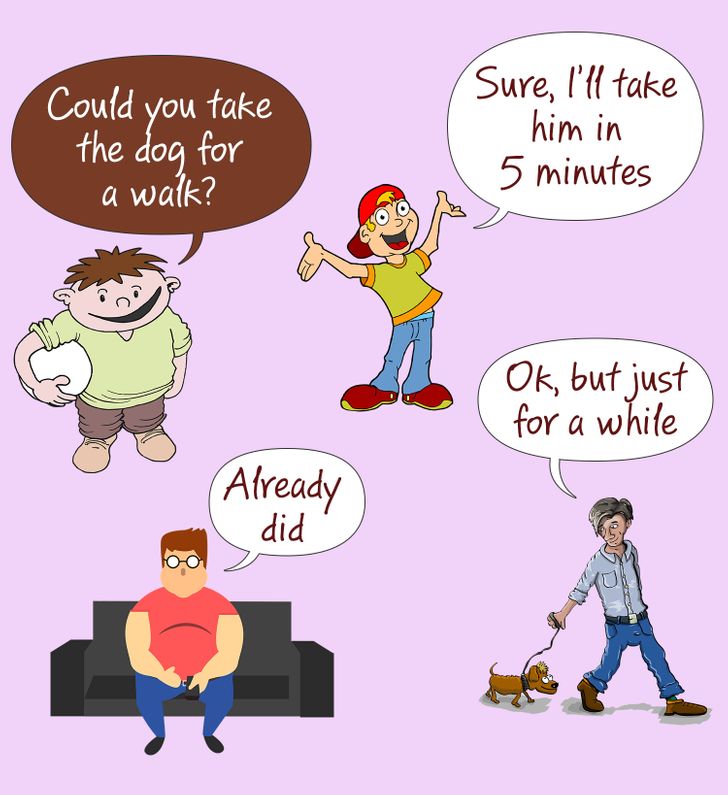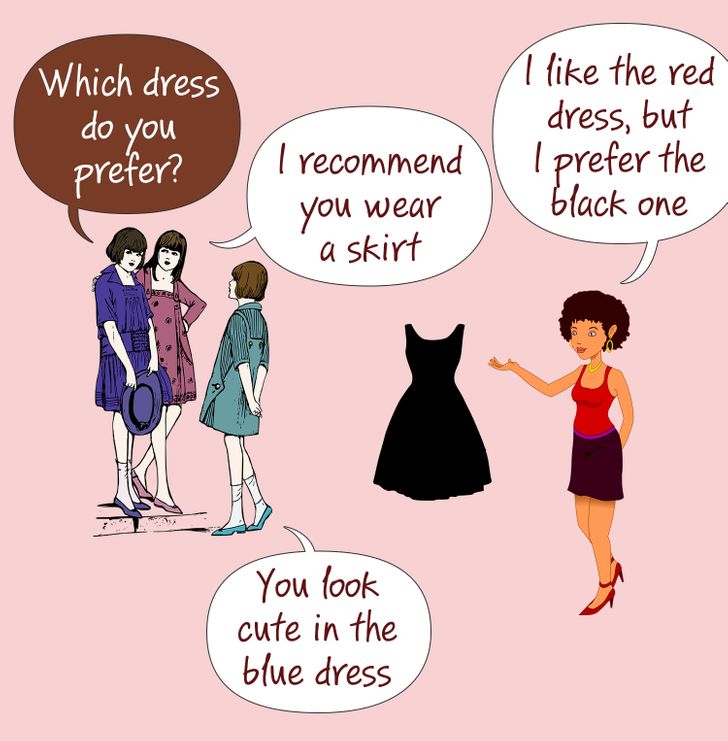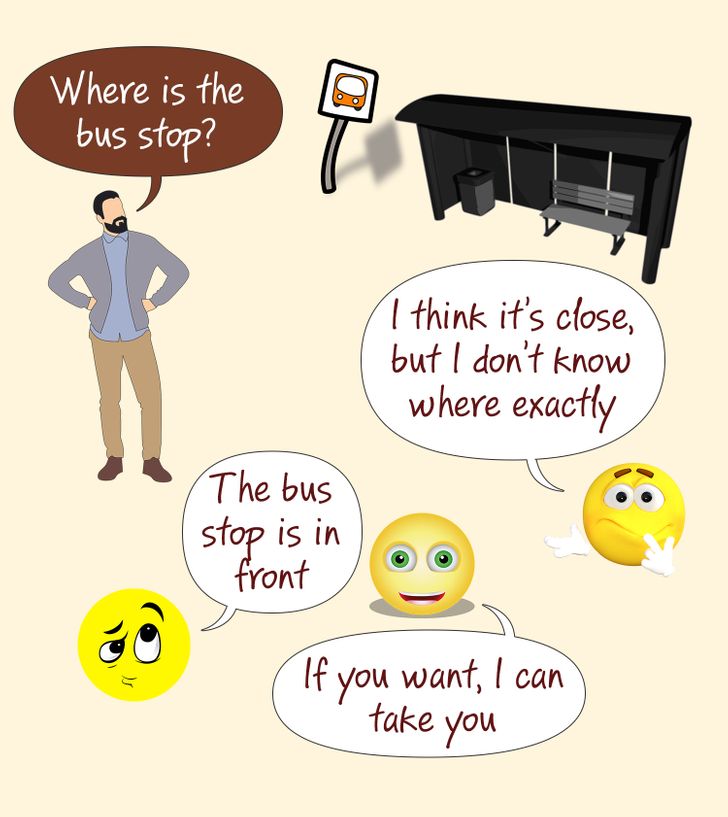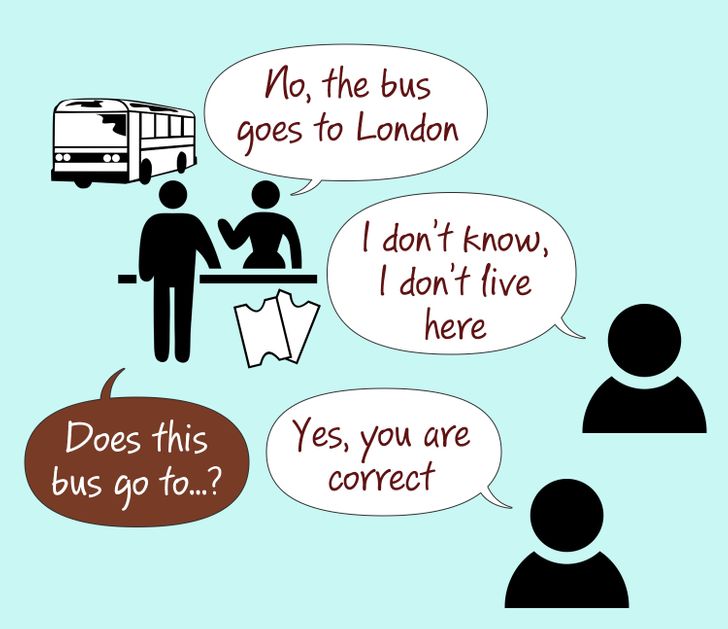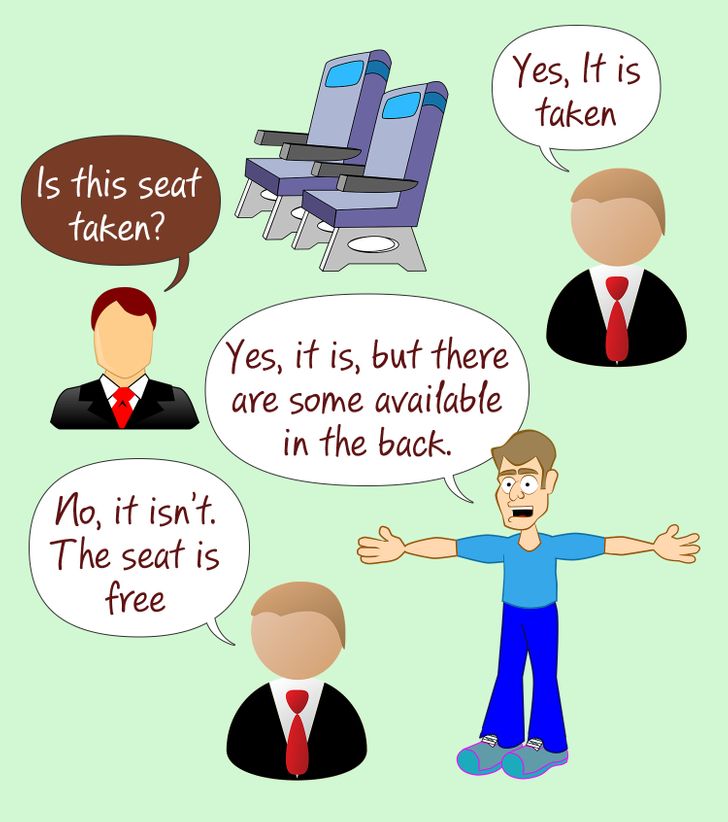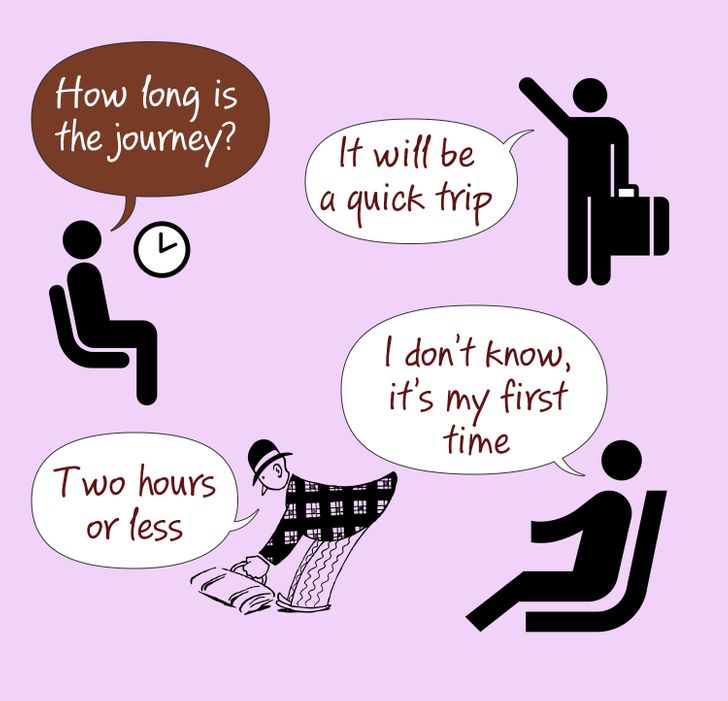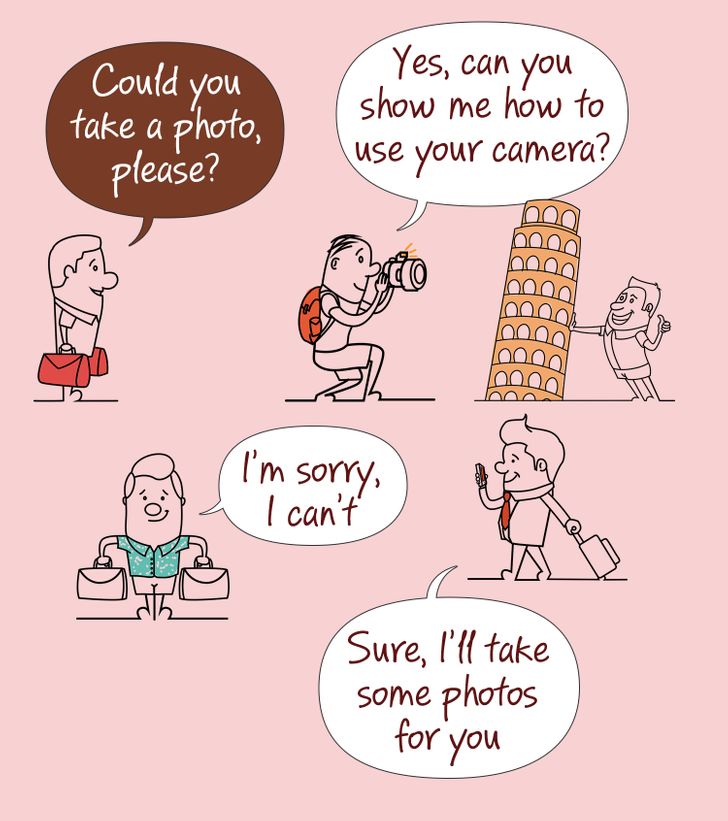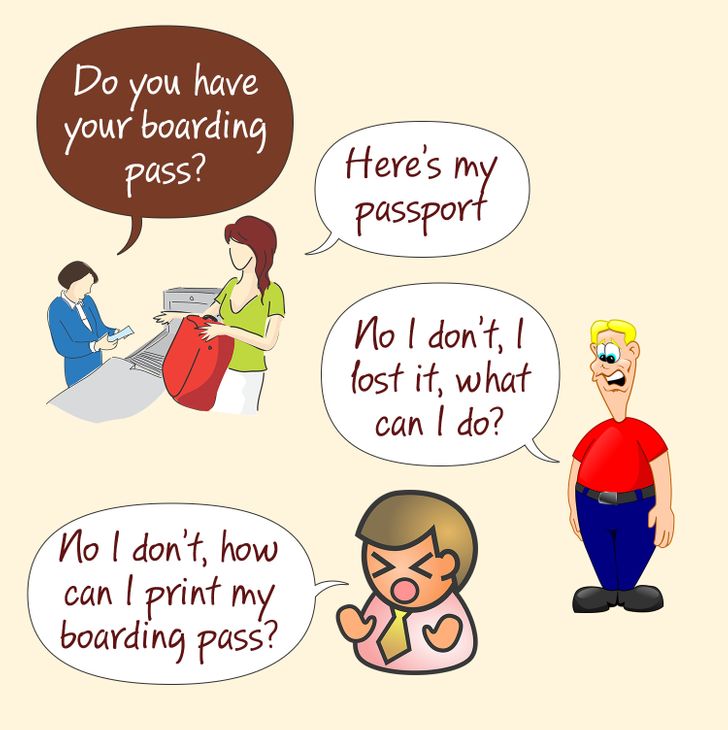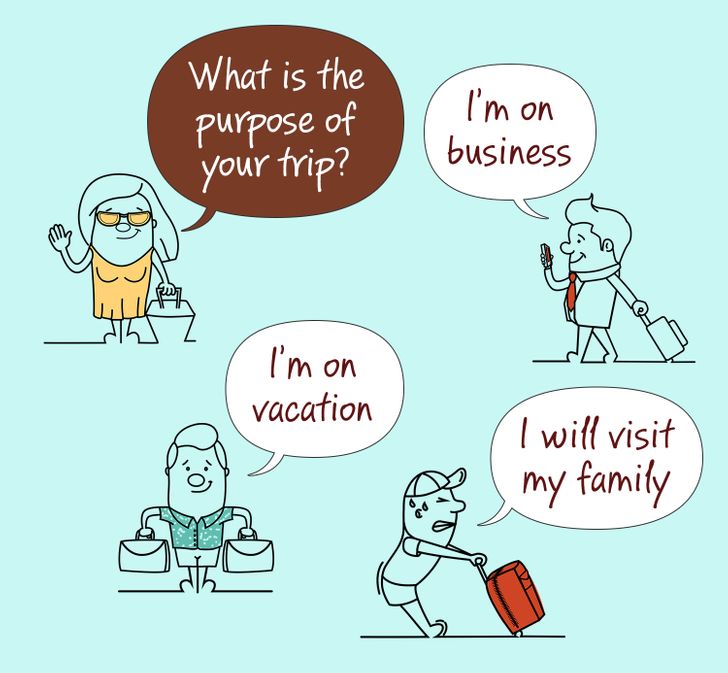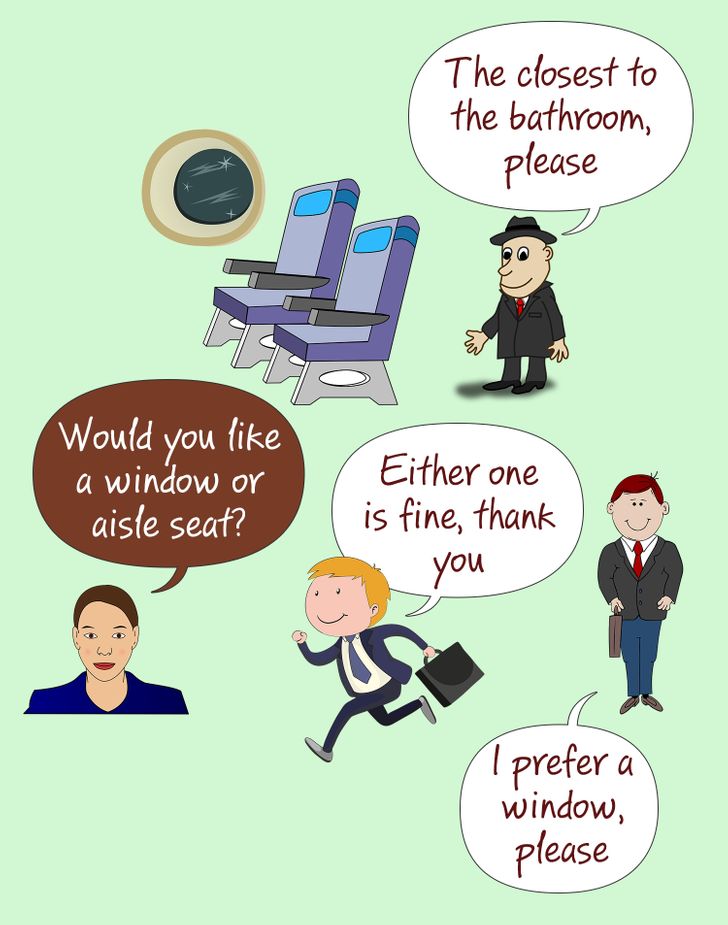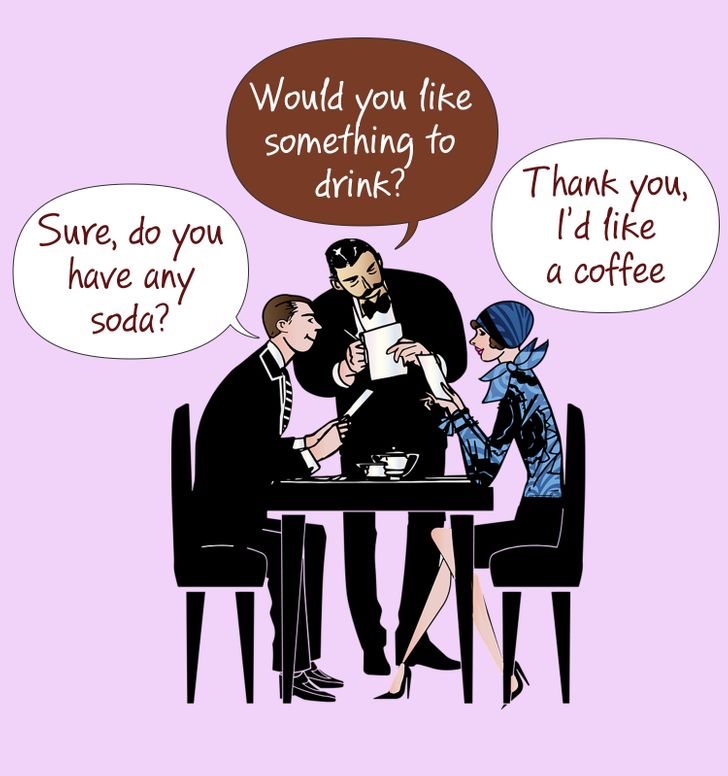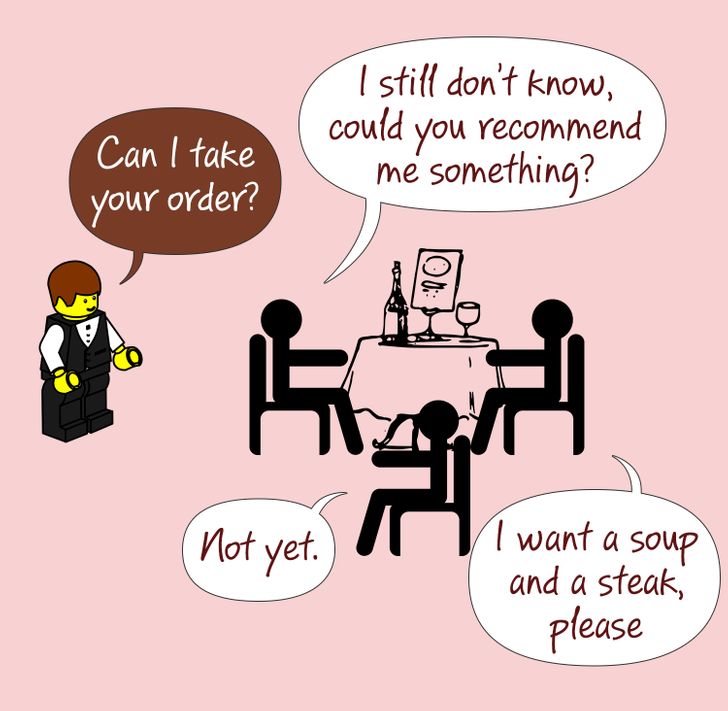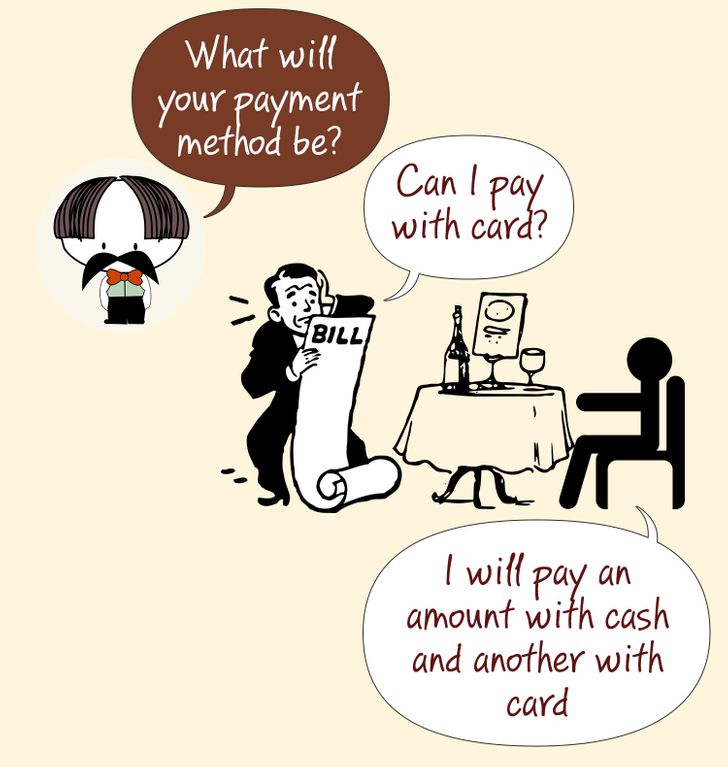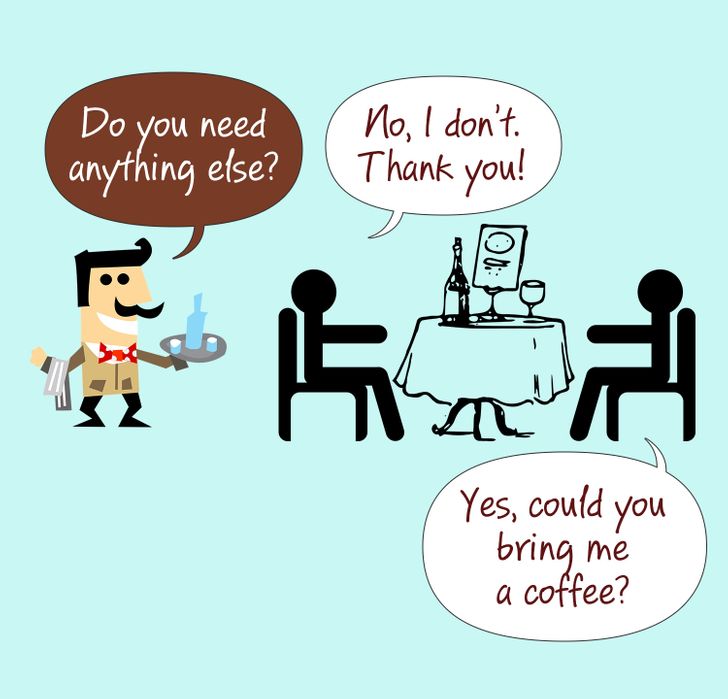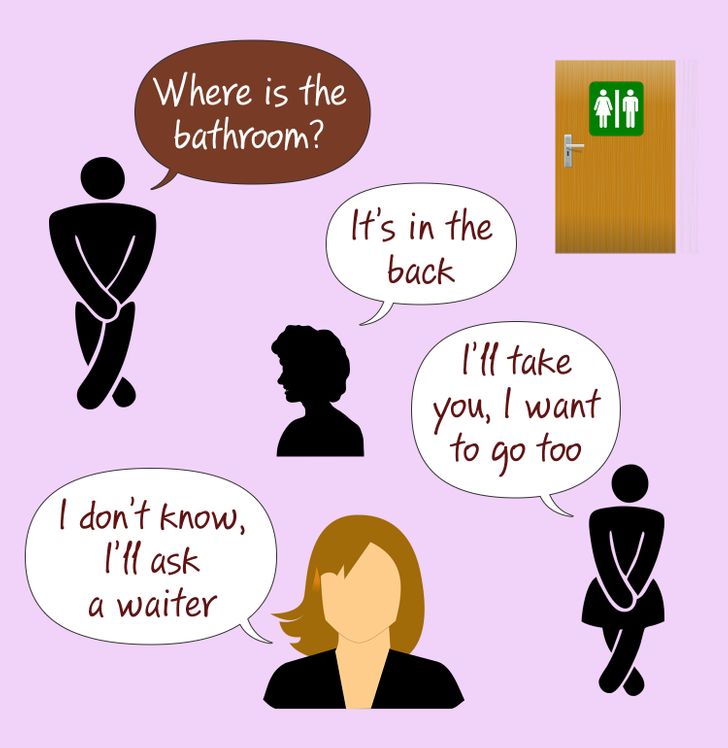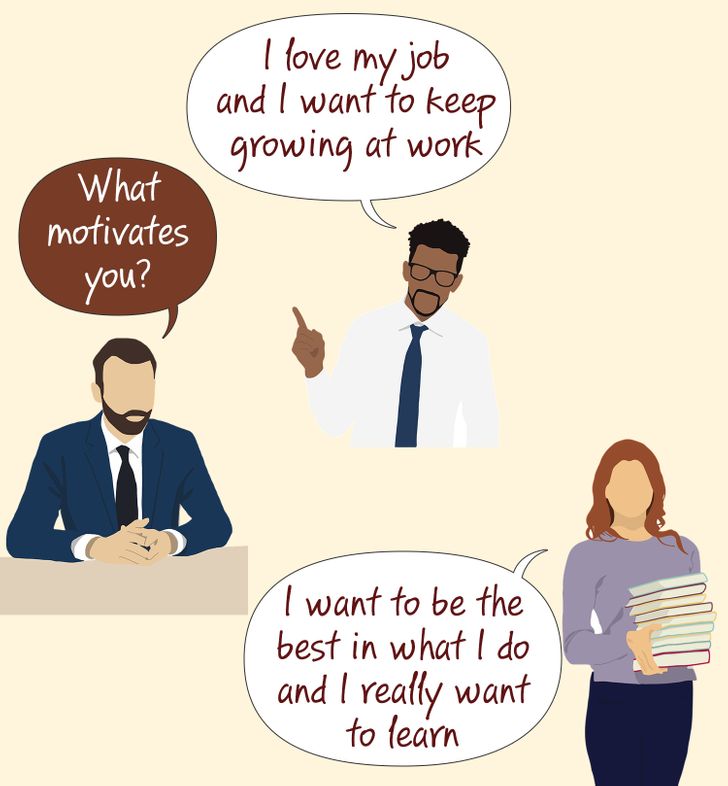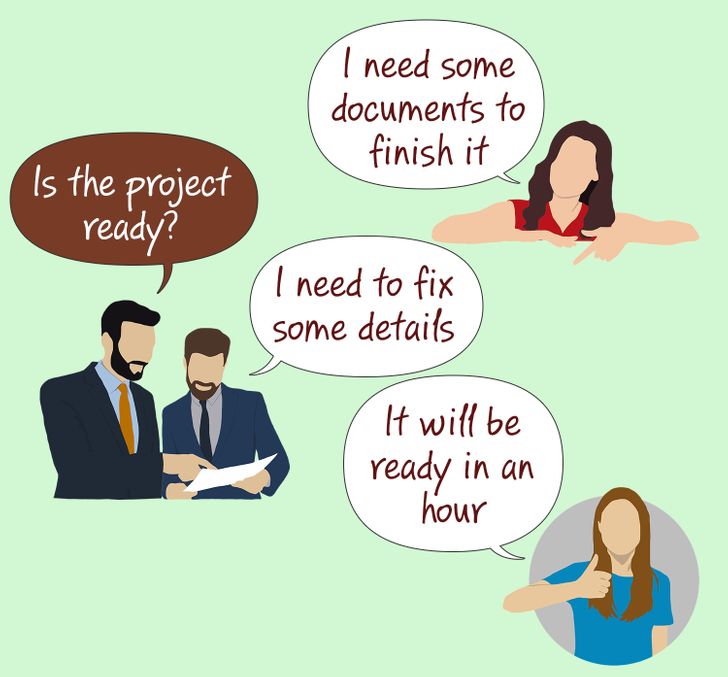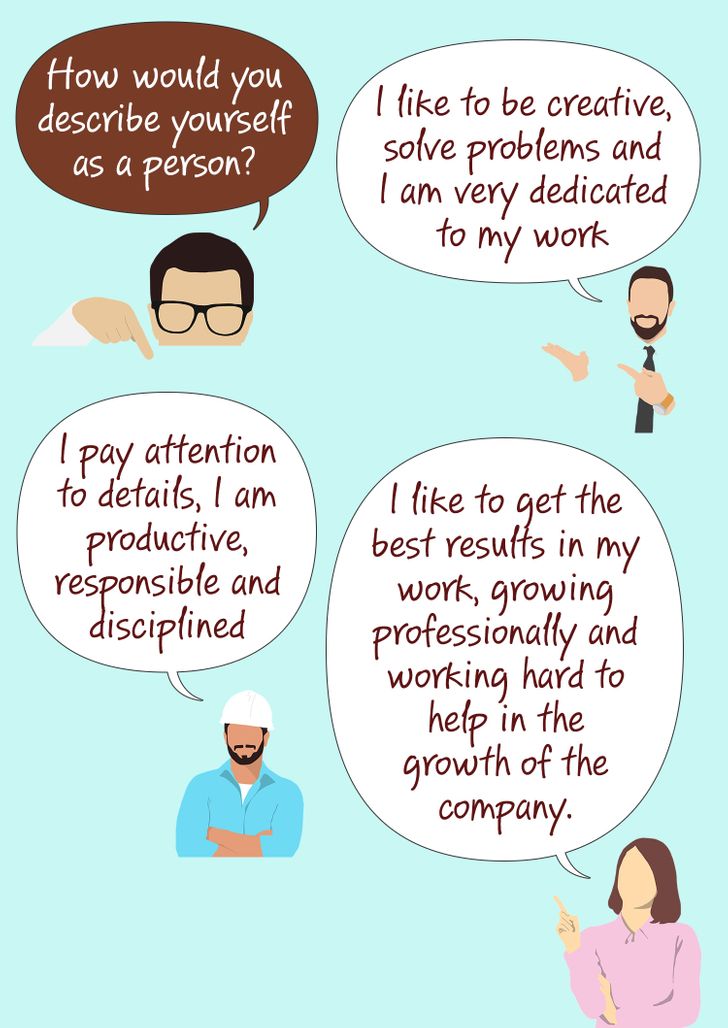Muy buen artículo!
42 Preguntas en inglés que se usan de manera habitual y algunas de sus posibles respuestas
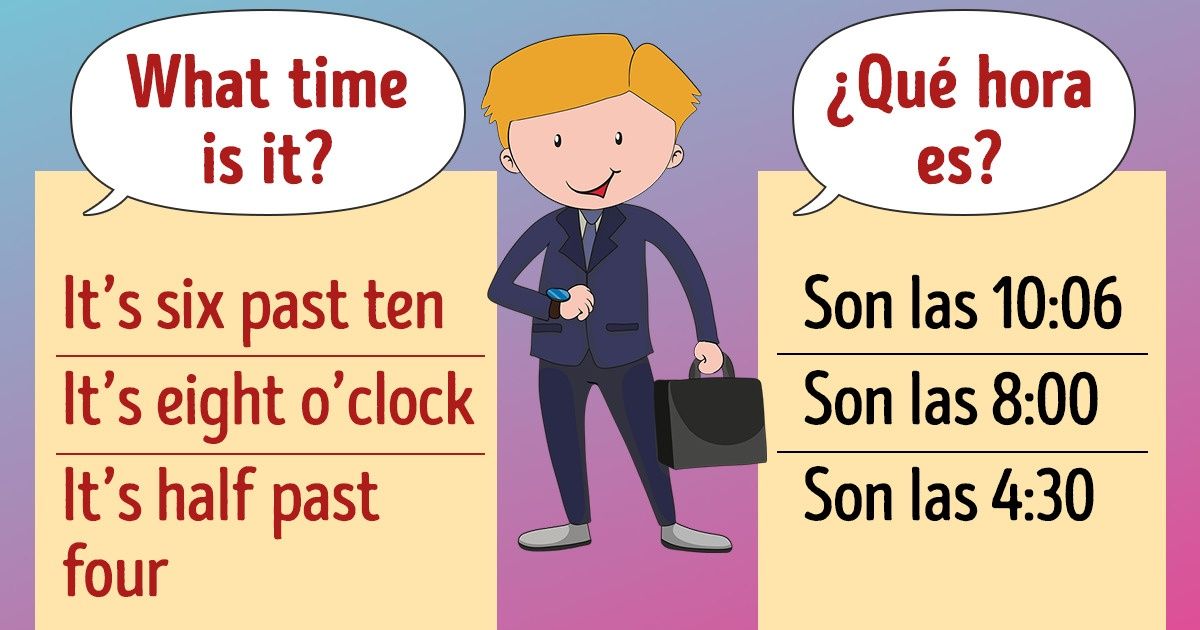
Cada vez es más indispensable hablar inglés. Para una cita de negocios, para presentarte, para pedir algo en algún restaurante o para hacer un viaje al extranjero, este idioma es la clave en la comunicación que tienes con otras personas. Cuando aprendes esta o cualquier otra lengua extranjera es fundamental que sepas desenvolverte en situaciones cotidianas y que tengas las herramientas necesarias para poder responder de distintas maneras a lo que te preguntan.
Genial.guru recopiló algunas de las preguntas más habituales y algunas opciones para responder, ya que estos cuestionamientos podrían presentarse en una conversación de tu vida cotidiana y es importante que sepas expresar lo que quieres de verdad.
Información básica
1. ¿Cuál es tu nombre?
En inglés: What is your name?
Posibles respuestas:
-
Soy Sam: I am Sam.
-
Mi nombre es Mónica: My name is Mónica.
-
Mi nombre es Mauricio, pero me gusta que me digan Mau: My name is Mauricio, but I like to be called Mau.
-
Mi nombre es Omar, ¿cuál es el tuyo?: My name is Omar, what’s yours?
2. ¿Cuál es tu apellido?
En inglés: What is your last name?
Posibles respuestas:
-
Mi apellido es Arriaga: My last name is Arriaga.
-
Mi apellido es Smith, ¿cuál es el tuyo?: My last name is Smith, what’s yours?
3. ¿Cómo estás?
En inglés: How are you?
Posibles respuestas:
-
Bien, gracias. ¿Y tú?: Fine, thank you. And you?
-
Muy bien, gracias: Very well, thank you.
-
No estoy muy bien: Not so good.
-
No podría estar mejor: I couldn’t be better.
-
Estoy bien: I’m ok.
-
No me puedo quejar: I can’t complain.
-
No muy bien, me siento un poco enfermo: Not very well, I feel a bit sick.
4. ¿De dónde eres?
En inglés: Where are you from?
Posibles respuestas:
-
Soy de México: I’m from Mexico
-
Vengo de Argentina: I come from Argentina
-
Soy de Rusia, ¿de dónde eres tú?: I’m from Russia, where are you from?
-
Soy de China, ¿y tú?: I’m from China, and you?
5. ¿En dónde vives?
En inglés: Where do you live?
Posibles respuestas:
-
Vivo en Buenos Aires, Argentina: I live in Buenos Aires, Argentina.
-
Vivo en un apartamento en el centro: I live in an apartment downtown.
-
Vivo con algunos amigos en San Diego: I live with some friends in San Diego.
6. ¿Cuántos años tienes?
En inglés: How old are you?
Posibles respuestas:
-
Tengo 24 años: I’m twenty-four.
-
Tengo 35: I’m thirty-five.
-
Prefiero no decirlo: I would rather not say.
-
Una dama nunca dice su edad: A lady never tells her age.
-
No quiero decirlo: I don’t want to say.
-
Perdona, pero eso no es asunto tuyo: Excuse me, but that’s none of your business.
7. ¿A qué te dedicas?
En inglés: What do you do?
Posibles respuestas:
-
Soy estudiante: I’m a student.
-
Soy ama de casa: I’m a housewife.
-
Estoy buscando un trabajo: I am looking for a job.
-
Tengo mi propio negocio: I have my own business.
-
Trabajo en un hospital: I’m work in a hospital.
-
Soy mecánico. Reparo autos: I’m a car mechanic. I repair cars.
8. ¿Cuál es tu número telefónico?
En inglés: What is your phone number?
Posibles respuestas:
-
Mi número es...: My phone number is...
-
Es...: It’s...
9. ¿Cuál es tu dirección?
En inglés: What’s your address?
Posibles respuestas:
-
Vivo en la calle Membrillo número 206: I live at 206 Membrillo Street.
-
Mi dirección es...: My address is...
-
Vivo en la calle Membrillo: I live at Membrillo street
10. ¿Tienes hermanos o hermanas?
En inglés: Do you have any brothers or sisters?
Posibles respuestas:
-
Sí, tengo una hermana: Yes, I have a sister.
-
Sí, tengo un hermano: Yes, I have a brother.
-
No, soy hijo único: No, I don’t. I’m an only child.
-
Sí, tengo 2 hermanas y un hermano: Yes, I have two sisters and a brother.
-
Tengo 3 hermanos, yo soy la menor: I have 3 brothers, I am the youngest.
-
No, pero me habría gustado: I don’t, but I would have liked.
11. ¿Qué te gusta hacer?
En inglés: What do you like to do?
Posibles respuestas:
-
Me gusta ir al cine: I like going to the cinema.
-
Me gusta cocinar: I like reading.
-
Me gusta jugar baloncesto, ir de compras, leer y salir con mis amigos: I like playing basketball, shopping, reading and going out with my friends.
-
Me gusta comer, pero no cocinar: I like eating but I don’t like cooking.
-
Amo hacer ejercicio, pero odio correr: I love exercising but I hate running.
-
Yo disfruto estar con mis hijos: I enjoy being with my children.
12. ¿Cuál es tu color favorito?
En inglés: What’s your favorite color?
Posibles respuestas:
-
Mi color favorito es el rojo: My favorite color is red.
-
Es el azul: It’s blue.
-
Me gustan el amarillo, el rosa y el azul, pero mi favorito es el negro: I like yellow, pink and blue, but my favorite is black.
-
Prefiero el morado: I prefer purple.
13. ¿Qué piensas sobre...?
En inglés: What do you think about...?
Posibles respuestas:
-
Es genial: It’s great.
-
Yo pienso que podría ser mejor: I think it could be better.
-
No me gusta hablar del tema: I don’t like to talk about it.
-
No sé mucho del tema, ¿qué piensas tú?: I don’t know much about it, what do you think?
-
Creo que es muy desagradable: I think it’s very unpleasant.
-
No me gusta la idea, yo prefiero...: I don’t like the idea, I prefer...
14. ¿Eres casado?
En inglés: Are you married?
Posibles respuestas:
-
Sí estoy casado: Yes, I’m married.
-
Sí, tengo 2 años de casado: Yes, I have been married for 2 years.
-
No, no lo estoy: No, I’m not.
-
No, soy soltero: No, I’m not. I’m single.
-
No, pero tengo novia: No, but I have girlfriend.
-
No, pero pronto me casaré: No, but soon I will get married.
-
Soy viudo: I’m a widower.
-
Soy viuda: I’m a widow.
-
No, eso no es para mí: No, that is not for me.
-
No, me divorcié: No, I’m not. I’m divorced.
15. ¿Podría agregarte en Facebook?
En inglés: Could I add you on Facebook?
-
Lo siento, no tengo un perfil: Sorry, I don’t have a profile.
-
Prefiero Twitter, ¿te parece?: I prefer Twitter, do you like it?
-
Yo te agregaré, ¿cómo puedo encontrarte?: I will add you, how can I find you?
-
Sí, puedes encontrarme como...: Yes, you can find me as...
-
Prefiero que no: I prefer not.
Situaciones cotidianas
1. ¿Podrías repetirme eso?
En inglés: Could you repeat that again?
Posibles respuestas:
-
Claro, dije que...: Sure, I said that...
-
Sí, explicaré de nuevo: Yes, I will explain again.
-
¿Puedes comprender lo que digo? Puedo decir algunas palabras en español: Can you understand what I’m saying? I can say some words in Spanish.
-
Sí, hablaré más lento: Yes, I will speak slower.
2. ¿Podrías ayudarme, por favor?
En inglés: Could you help me, please?
Posibles respuestas:
-
Claro, dime cómo puedo ayudarte: Sure, tell me how I can help you.
-
¿Qué puedo hacer por ti?: What can I do for you?
-
Por supuesto, yo te ayudo: Of course, I’ll help you.
-
Lo siento, no puedo ayudarte: I’m sorry, I can’t help you.
3. ¿Qué hora es?
En inglés: What time is it?
Posibles respuestas:
-
Son las 10:06: It’s six past ten.
-
Son las 8: It’s eight o’clock.
-
Son las 4:30: It’s half past four.
-
Son las 9:53: Seven minutes to ten.
-
Son las 4:40: It’s twenty to five.
4. ¿Qué significa esta palabra?
En inglés: What does this word mean?
Posibles respuestas:
-
No sé el significado: I don’t know the meaning.
-
Significa: It means...
-
Esa palabra es sinónimo de...: That word is synonymous with...
4. ¿Cuánto cuesta?
En inglés: How much is it? / How much does it cost?
Posibles respuestas:
-
Cuesta 15 dólares: It costs fifteen dollars.
-
Cuesta mucho dinero: It costs a lot of money.
-
Es barato / económico: It’s cheap.
-
Es caro: It’s expensive.
5. ¿Quién dijo eso?
En inglés: Who said that?
Posibles respuestas:
-
El jefe lo dijo: The boss said it.
-
Mi amiga me contó: My friend told me.
-
No puedo decirte: I can’t tell you.
-
No lo sé: I don’t know.
6. ¿Dónde están mis llaves?
En inglés: Where are my keys?
Posibles respuestas:
-
No lo sé, no las he visto por aquí: I don’t know, I haven’t seen them around here.
-
Hay unas llaves en la mesa, ¿son tuyas?: There are some keys on the table, are they yours?
-
Tus llaves están en la cocina: Your keys are in the kitchen.
-
Creo que las dejaste en el trabajo: I think you left them at work.
-
Tal vez las perdiste: Maybe you lost them.
7. ¿Podrías sacar al perro a dar un paseo?
En inglés: Could you take the dog for a walk?
Posibles respuestas:
-
Claro, lo sacaré en 5 minutos: Sure, I’ll take him in 5 minutes.
-
Ya lo hice: Already did.
-
No puedo, tengo cosas que hacer: I can’t, I have things to do.
-
Está bien, pero solo un rato: Ok, but just for a while.
8. ¿Qué vestido prefieres?
En inglés: Which dress do you prefer?
Posibles respuestas:
-
Me gusta el vestido rojo, pero prefiero el negro: I like the red dress, but I prefer the black one.
-
Te recomiendo que uses una falda: I recommend you wear a skirt.
-
Te ves linda con el vestido azul: You look cute in the blue dress.
-
Cualquiera de estos está bien: Any of these is fine.
Viajes o paseos
1. ¿Dónde está la parada de autobús?
En inglés: Where is the bus stop?
Posibles respuestas:
-
La parada de autobús está en frente: The bus stop is in front.
-
Perdón, no lo sé, puedes preguntarle a alguien más: Sorry, I don’t know, you can ask someone else.
-
Creo que está cerca, pero no sé en dónde exactamente: I think it’s close, but I don’t know where exactly.
-
Está a 4 calles: It is 4 streets away.
-
Si quieres, puedo llevarte: If you want, I can take you.
-
Por esta calle, a la izquierda: Down this street, to the left.
2. ¿Este autobús va a...?
En inglés: Does this bus go to...?
Posibles respuestas:
-
No lo sé, no vivo aquí: I don’t know, I don’t live here.
-
Sí, estás en lo correcto: Yes, you are correct.
-
No, el autobús va a Londres: No, the bus goes to London.
3. ¿Está ocupado este asiento?
En inglés: Is this seat taken?
Posibles respuestas:
-
No, está libre: No, it isn’t. The seat is free.
-
No lo está, puedes sentarte: No, it isn’t. You can sit.
-
Sí, está ocupado: Yes, it is taken.
-
Sí, pero atrás hay algunos disponibles: Yes, it is, but there are some available in the back.
4. ¿Cuánto dura el viaje?
En inglés: How long is the journey/trip?
Posibles respuestas:
-
Será un viaje rápido: It will be a quick trip.
-
Dos horas o menos: Two hours or less.
-
Si vas en avión, dos horas, pero si vas en auto tardarás cinco horas: If you go by plane, two hours, but if you go by car it will take five hours.
-
No lo sé, es mi primera vez: I don’t know, it’s my first time.
-
Si no hay tráfico, tardarás 1 hora en llegar: If there is no traffic, it will take an hour to arrive.
5. ¿Podrías tomar una fotografía, por favor?
En inglés: Could you take a photo, please?
Posibles respuestas:
-
Claro, tomaré algunas fotos para ti: Sure, I’ll take some photos for you.
-
Sí, ¿puedes enseñarme cómo usar tu cámara?: Yes, can you show me how to use your camera?
-
Lo siento, no puedo: I’m sorry, I can’t.
6. ¿Tiene su pase de abordar?
En inglés: Do you have your boarding pass?
Posibles respuestas:
-
No, ¿cómo puedo imprimir mi pase de abordar?: No I don’t, how can I print my boarding pass?
-
Aquí tiene mi pasaporte: Here’s my passport.
-
No, lo perdí, ¿qué puedo hacer?: No, I don’t, I lost it, what can I do?
7. ¿Cuál es el motivo de su viaje?
En inglés: What is the purpose of your trip?
Posibles respuestas:
-
Estoy en negocios: I’m on business.
-
Estoy de vacaciones: I’m on vacation.
-
Es por trabajo: It’s for work.
-
Visitaré a mi familia: I will visit my family.
-
Por un problema familiar: For a family problem.
8. ¿Le gustaría un asiento en la ventana o un asiento en el pasillo?
En inglés: Would you like a window or aisle seat?
Posibles respuestas:
-
Cualquiera de los dos está bien, gracias: Either one is fine, thank you.
-
Prefiero en la ventana, por favor: I prefer a window, please.
-
En el pasillo está bien: Aisle seat is fine.
-
El más cercano al baño, por favor: The closest to the bathroom, please.
Restaurantes
1. ¿Le gustaría tomar algo?
En inglés: Would you like something to drink?
Posibles respuestas:
-
No, gracias, estoy bien: No, thank you, I’m fine.
-
Sí, por favor: Yes, please.
-
Sí, eso sería agradable, gracias: Yes, that would be nice. Thank you.
-
Eso estaría bien, gracias por ofrecer: That would be nice, thanks for offering.
-
Claro, ¿tienes algún refresco?: Sure, do you have any soda?
-
Gracias, me gustaría un café: Thank you, I’d like a coffee.
2. ¿Le puedo tomar la orden?
En inglés: Can I take your order?
Posibles respuestas:
-
Quiero una sopa y un filete, por favor: I want a soup and a steak, please.
-
Aún no: Not yet.
-
No todavía, ¿podrías regresar en un momento, por favor?: Not yet, could you come back in a moment, please?
-
Todavía no lo sé ¿podrías recomendarme algo?: I still don’t know, could you recommend me something?
3. ¿Cuál será su forma de pago?
En inglés: What will your payment method be?
-
Efectivo: Cash.
-
¿Puedo pagar con tarjeta?: Can I pay with card?
-
Pagaré una cantidad con efectivo y otra con tarjeta: I will pay an amount with cash and another with card.
4. ¿Necesita algo más?
En inglés: Do you need anything else?
Posibles respuestas:
-
No, gracias: No, thank you.
-
No, eso es todo, gracias: No, that’s it, thank you.
-
Sí, ¿podrías traerme un café?: Yes, could you bring me a coffee?
5. ¿Dónde está el sanitario?
En inglés: Where is the bathroom?
Posibles respuestas:
-
No lo sé, le preguntaré a un mesero: I don’t know, I’ll ask a waiter.
-
Está al fondo: It’s in the back.
-
Te llevo, yo también quiero ir: I’ll take you, I want to go, too.
-
Sigue derecho y luego gira a la izquierda: Go straight and then turn left.
Entorno laboral
1. ¿Por qué quieres trabajar con nosotros?
En inglés: Why do you want to work for us?
Posibles respuestas:
-
Siempre he querido este empleo. Es una empresa internacional y me interesa mucho crecer y aprender más sobre mi trabajo: I have always wanted this job. It is an international company and I am very interested in growing and learning more about my work.
-
Esta empresa puede darme la oportunidad de hacer lo que me gusta: This company can give me the opportunity to do what I like.
2. ¿Qué te motiva?
En inglés: What motivates you?
Posibles respuestas:
-
Estoy motivado por los desafíos: I am motivated by challenges.
-
Quiero ser el mejor en lo que hago y tengo muchas ganas de aprender: I want to be the best in what I do and I really want to learn.
-
Amo mi trabajo y quiero seguir creciendo laboralmente: I love my job and I want to keep growing at work.
-
Quiero cumplir mis sueños: I want to achieve my dreams.
3. ¿Qué piensas de tu jefe?
En inglés: What do you think of your boss?
Posibles respuestas:
-
Él es muy amable, profesional y trabajador. Aprendí mucho trabajando en su empresa: He is very kind, professional and hardworking. I learned a lot working in your company.
-
Ella es una líder muy comprensiva y trabajadora: She is a very understanding and hardworking leader.
-
Tenemos una buena relación, me ayuda siempre cuando tengo problemas y he aprendido mucho de él: We have a good relationship, he always helps me when I have problems and I have learned a lot from him.
4. ¿El proyecto está listo?
En inglés: Is the project ready?
Posibles respuestas:
-
Sí, está listo: Yes, It’s ready.
-
Estará listo en una hora: It will be ready in an hour.
-
Necesito arreglar algunos detalles: I need to fix some details.
-
Necesito algunos documentos para terminarlo: I need some documents to finish it.
-
No lo está. Necesito verificar algunas cosas: It’s not. I need to verify some things.
5. ¿Cómo se describiría a sí mismo?
En inglés: How would you describe yourself as a person?
Posibles respuestas:
-
Presto atención a los detalles, soy productivo, responsable y disciplinado: I pay attention to details, I am productive, responsible and disciplined.
-
Me gusta ser creativo, resolver problemas y soy muy dedicado a mi trabajo: I like to be creative, solve problems and I am very dedicated to my work.
-
Me gusta conseguir los mejores resultados en mi trabajo, crecer profesionalmente y trabajar duro para ayudar en el crecimiento de la empresa: I like to get the best results in my work, growing professionally and working hard to help in the growth of the company.
¿Qué problemas has tenido con el idioma? ¿Cuál es la mejor anécdota que tienes hablando inglés? Cuéntanos tus respuestas en los comentarios.
Comentarios
Hagan más así, son muy útiles
Me vino súper para darle un repaso a mi inglés
Muy buen artículo, completo para una conversación
Genial que se acompañe con viñetas bonitas :D
Lecturas relacionadas
20 Maestros tan épicos que deberían tener su propia estatua en la escuela
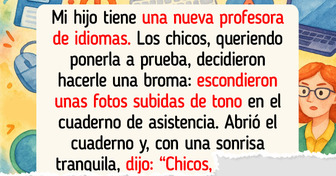
21 Personas que creían que sus hábitos familiares eran comunes hasta que hablaron de ellos
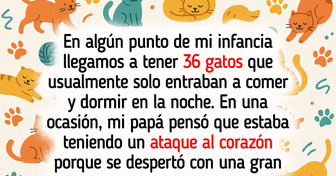
16 Arrendadores que querían ingresos pasivos y recibieron drama en cuotas
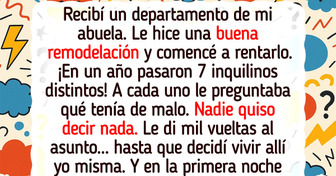
20 Enamorados que encontraron a su alma gemela entrenando en el gimnasio
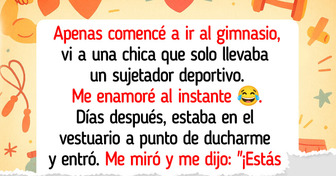
10 Personas a las que claramente nunca les dijeron “no” de niños, y cómo evitar criar a un adulto irresponsable
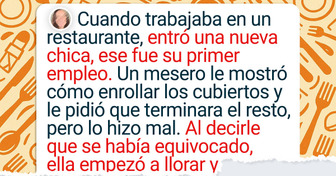
Quise limitar el uso del móvil de mi hija, y ahora me arrepiento cada noche
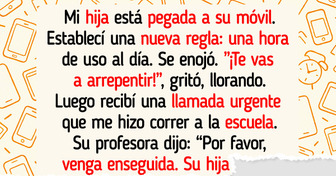
12 Historias de amor y caos que estallaron frente al altar
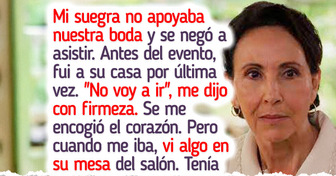
15 Mujeres que entendieron que pedir un “cambio de look” puede ser un deporte extremo
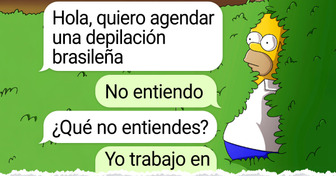
17 Historias que demuestran que no saber de finanzas puede salir muy caro
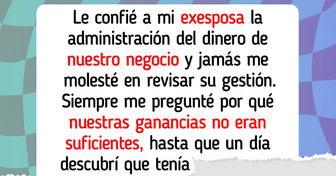
Le pedí a mi madre que me pagara por cuidarla, y lo que hizo me dejó helada
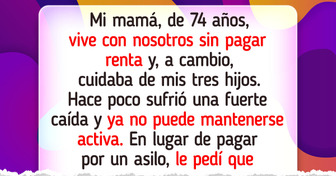
14 Actores que no aceptaron un guion y salieron ganando

15+ Comparaciones de antes y después que te dejarán con la boca abierta
